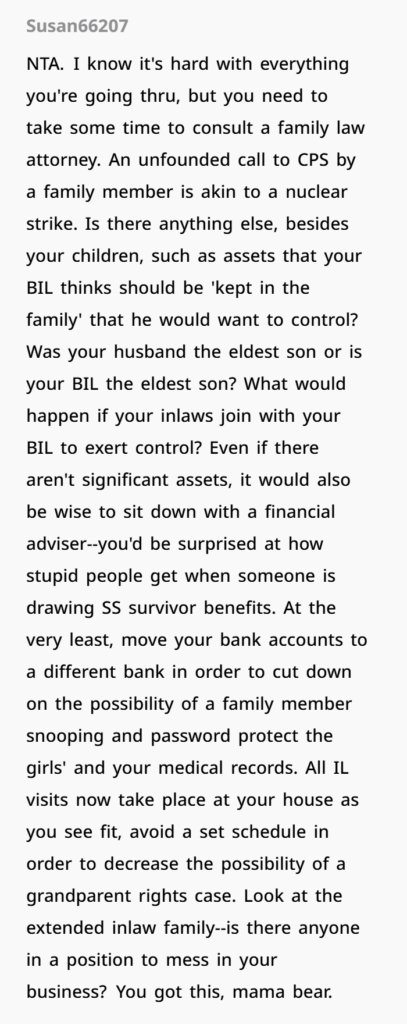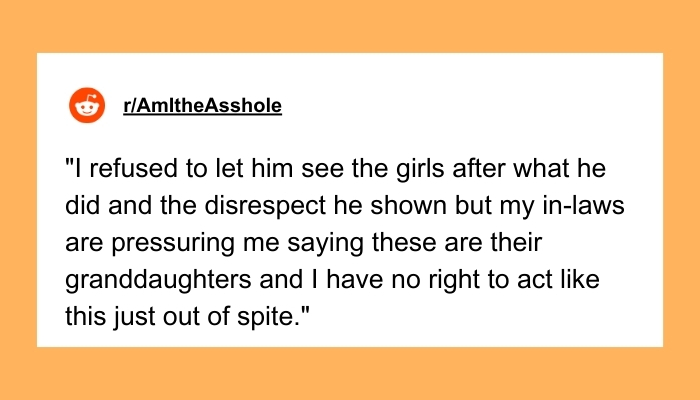Mom Has To Deal With CPS After Losing Her Husband Thanks To BIL, Can’t Forgive Him
Family relationships can be peaceful, but sometimes a toxic in-law can create emotional stress and destroy harmony. This is especially true when someone refuses to respect personal boundaries.
One woman, already heartbroken after losing her husband, faced an unbelievable situation. Her brother-in-law demanded more time with her kids. When she said no, he retaliated by calling Child Protective Services (CPS) — a cruel act fueled by anger, not concern.
To make things worse, her entire in-law family turned against her, making her feel isolated during an already painful time. Feeling overwhelmed, she turned to the internet, asking others if she did the right thing.
Read for more info Reddit
A woman was at odds with her brother-in-law, who disrespected her boundaries
It began when he demanded to spend more time with her children
















People act out of spite to gratify their egos when they feel wronged
Setting healthy family boundaries is essential—especially when dealing with toxic in-laws. But one grieving widow faced an extreme and heartbreaking situation when her brother-in-law retaliated after she denied his request to spend more time with her children. In a shocking act of emotional abuse, he called Child Protective Services (CPS) just to punish her.
This disturbing move created mental and emotional trauma, not just for the woman, but also for her children. It happened during the most vulnerable time of her life—while she was still mourning the loss of her husband.
According to Dr. Leon F. Seltzer, a former clinical psychologist and contributor to Psychology Today, spiteful behavior is emotionally addictive. In his expert opinion, people may act out of spite to change their emotional state, even if it causes serious damage. He explains that such behavior can be “mood-changing” and even “consciousness-altering,” offering a kind of emotional high to the person acting out.
Dr. Seltzer warns that some individuals will go to extreme lengths to satisfy these urges, ignoring the harm they cause. That insight may explain why the brother-in-law exaggerated the situation to CPS, risking the emotional well-being of his own family.
“It’s to gain a mental or emotional advantage over the other,” Dr. Seltzer wrote, “and… how it might negatively affect your own welfare simply fades from view.”
In response to this betrayal, the woman took a strong stand. She set clear legal and emotional boundaries to protect her children and herself from further trauma.
Experts like licensed marriage and family therapist Michelle Landeros suggest limiting toxic interactions with difficult relatives. As she shared with The Knot, making changes like reducing visits or communication “respects family bonds while maintaining comfortable boundaries.”
Given the emotional damage from the CPS report, the woman was well within her rights to stop her brother-in-law from seeing her children. Sadly, her decision led to more family drama, increasing her emotional burden and complicating her grief.
The woman provided more information in the comments








